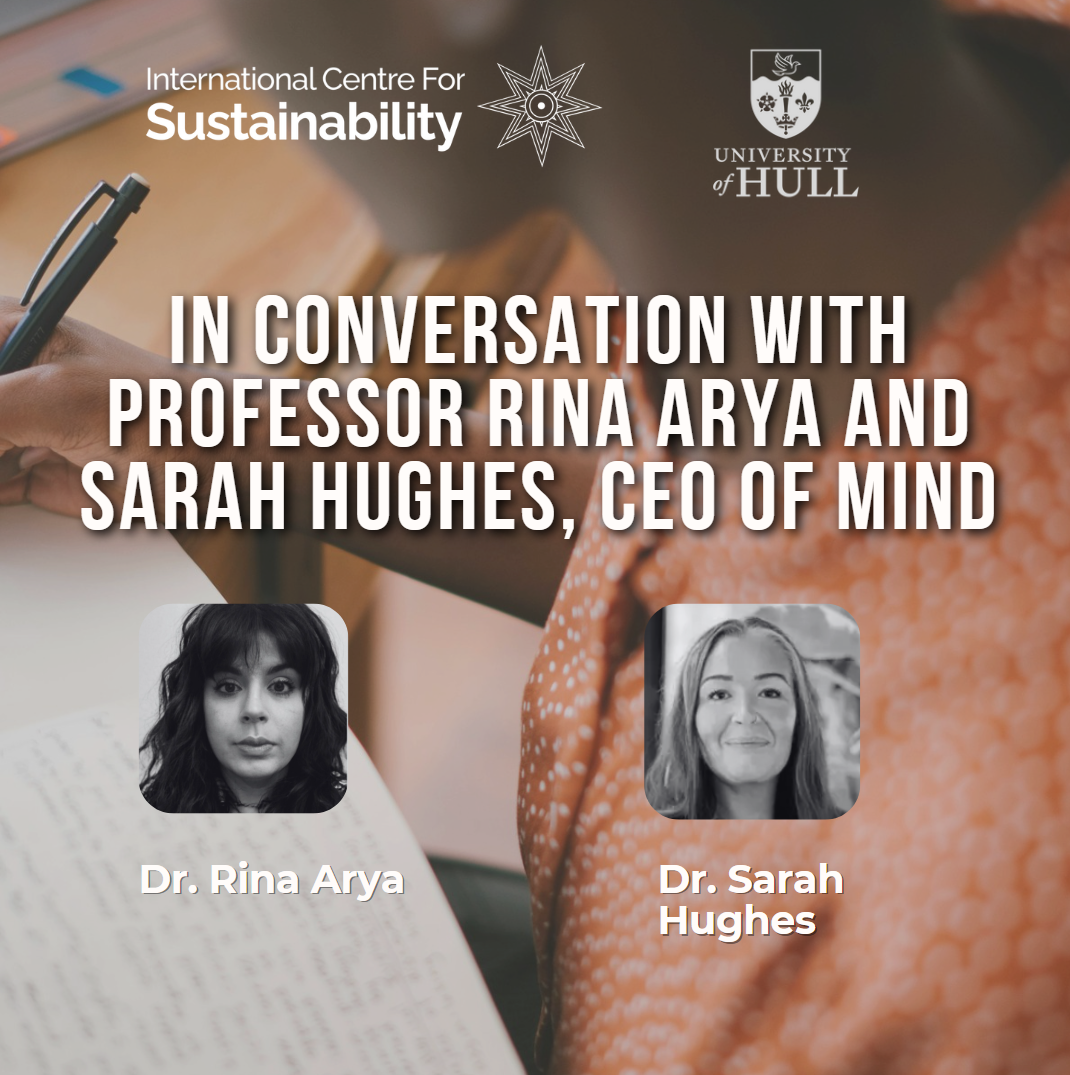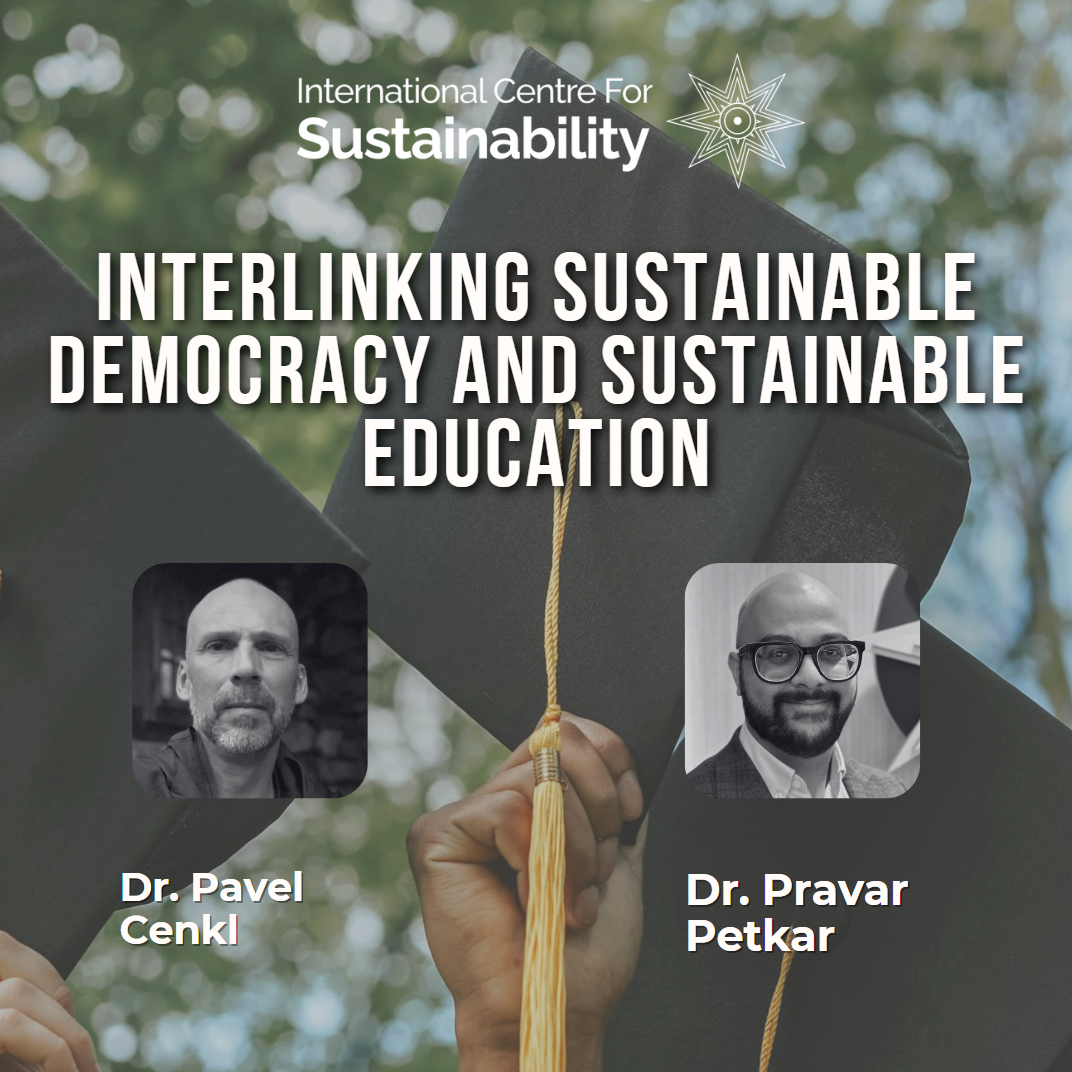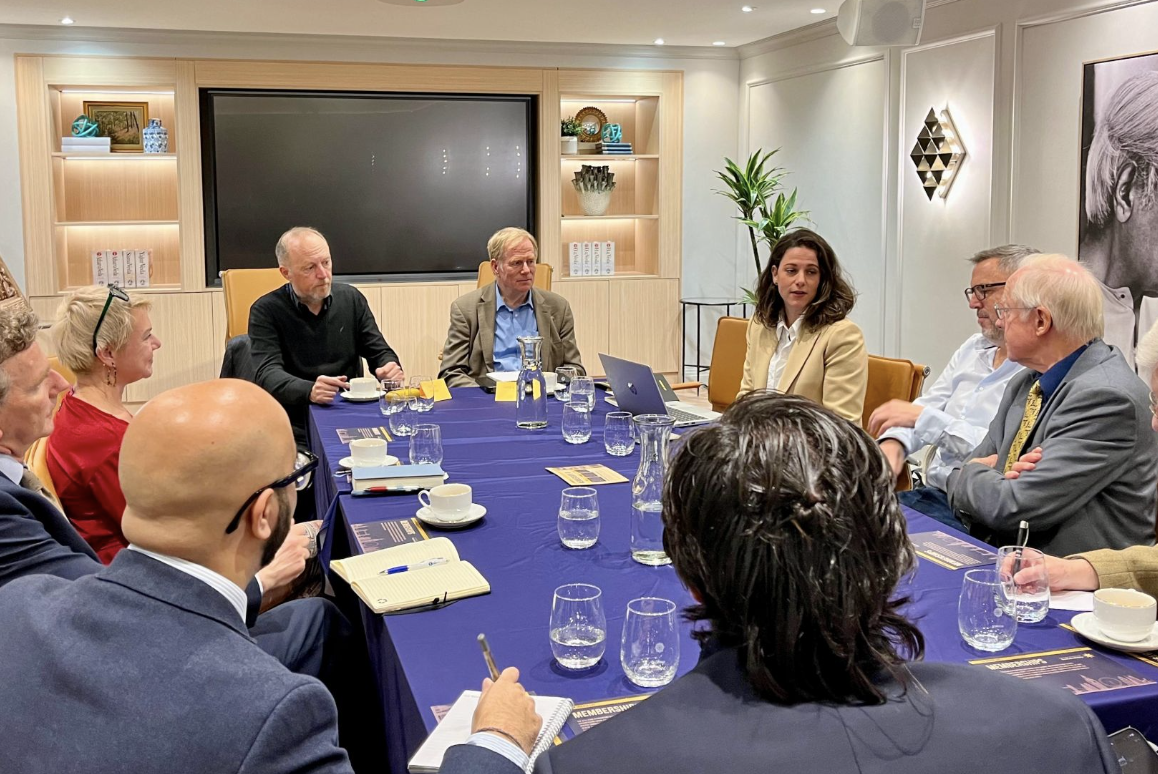ex oriente lux
Upcoming Talks
Join insightful and engaging talks led by industry experts, politicians and thought leaders on a variety of compelling topics.
Previous Events

In an era where machines learn from machines, how do we preserve truth?
Join Vivek Dixit, Fintech CIO, CTO and ICfS Fellow, for an incisive K-Lecture on the power of credible data in the age of Generative AI. As algorithms increasingly recycle AI- created content, the line between insight and illusion is blurring. Vivek argues that the future will not be built on more data—but on better, verifiable, and human-sourced data. Discover why authentic, primary research will become the most valuable currency in tomorrow’s AI-driven world.

One of the world’s most secretive yet influential organisations is the Rashtriya Swayamsevak Sangh (RSS). At its core stands its founder, Dr Keshav Hedgewar, who began the movement in 1925. As the RSS marks its centenary in October 2025, its influence on the ruling BJP and Prime Minister Narendra Modi is unmistakable. To understand the effect this is having on modern India, her values and aspirations, join author Sachin Nandha, whose Penguin biography and new paper on Hedgewar’s Progressive Conservatism illuminate this legacy. For the UK, grasping these currents is essential: India is not only a key economic partner, but also a society at the heart of global debates on culture, democracy, and identity.

In an era of climate change, conflict, and economic upheaval, can India, now the world’s most populous nation, largest democracy, and fourth-largest economy, step up as a major global partner? Join His Excellency Vikram K. Doraiswami, High Commissioner of India to the UK, for a thought-provoking K-Lecture on India’s place in today’s shifting world order.

Join us for a powerful discussion on the UK’s landmark Environment Act 2021, the role of environmental law post-Brexit and the future of biodiversity protection. As we head towards the 2030 targets, this lecture explores whether our legal frameworks are truly fit to restore nature, before it’s too late.
Dame Theresa Villiers is a former Environment Secretary under the Conservative government, instrumental in shaping the UK’s Environment Act 2021 and a leading voice on post-Brexit environmental and planning reform.

What lessons are there from these success stories for young black people in low-income communities?
This lecture by Lord Tony Sewell, based on his book Black Success: The Surprising Truth, explores lessons for social mobility from the success of black people in Britain. It will highlight the importance of family, education, hard work, discipline, and high ambitions, combining research on racial disparities in the UK with personal experience to chart a path for a successful, multiracial, and multicultural society.
Watch the recording of the event on YouTube by clicking on the logo on the top right.
This lecture by Lord Tony Sewell, based on his book Black Success: The Surprising Truth, explores lessons for social mobility from the success of black people in Britain. It will highlight the importance of family, education, hard work, discipline, and high ambitions, combining research on racial disparities in the UK with personal experience to chart a path for a successful, multiracial, and multicultural society.
Watch the recording of the event on YouTube by clicking on the logo on the top right.

The world is not always as it seems. NGOs are often seen as neutral humanitarian actors—but are they truly impartial? Who funds them? What agendas do they serve? How do they influence governments, conflicts and global security?
Watch the recording of the event on YouTube by clicking on the logo on the top right.
Watch the recording of the event on YouTube by clicking on the logo on the top right.

The global food system is the single largest contributor to the ongoing ecological crisis, impacting every one of the six planetary boundary transgressions that the Stockholm Resilience Center identified in 2023. This necessitates its transformation to a compassionate food system that meets the nutritional needs of all human beings while ensuring that these planetary boundary transgressions are mitigated. In this talk, we will examine the architectures of compassionate food systems and how they can be implemented as the foundation of a holistic transformation from the climate heating phase to the climate healing phase of our civilization.
Watch the recording of the event on YouTube by clicking on the logo on the top right.
Watch the recording of the event on YouTube by clicking on the logo on the top right.

Together, Professor Arya and Dr. Hughes focused on the challenges of mental health in a post-Covid environment and how to address the needs of particular groups within society, especially the student population. This session explorde the unique pressures the groups encounter, including cultural expectations, systemic inequalities and the mental health impact of navigating multicultural identities. Drawing on Professor Arya’s expertise in cultural theory and Dr. Hughes’ leadership in mental health advocacy, the talk highlighted strategies for creating inclusive, culturally sensitive support systems.
Watch the recording of the event on YouTube by clicking on the logo on the top right.
Watch the recording of the event on YouTube by clicking on the logo on the top right.

The world today faces a complex series of interdependent and seemingly intractable issues, including a global ecological crisis, political polarisation, weakened democratic accountability and issues with funding and government interference in Higher Education. This panel discussion explored an innovative approach to resolving this polycrisis, bridging the philosophy of Jiddu Krishnamurti and Rabindranath Tagore with participatory democracy and a focus on both human and more-than-human communities. This solution, developed in a new research paper co-authored by Dr Pavel Cenkl and Dr Pravar Petkar, shapes new methods of Higher Education pedagogy that empower individuals and facilitate greater civic engagement to bring together communities and resolve collective issues.
Watch the recording of the event on YouTube by clicking on the logo on the top right.
Watch the recording of the event on YouTube by clicking on the logo on the top right.

The next 10 years will be the age of disruption to the liberal international order that has largely come to dominate all our lives since the Second World War. Trump is the great disruptor to that order, and will lead the west, whether the West wants to be lead or not! Xi is another disruptor who is increasingly challenging the US, and has a “China first” framework, which is competing for global influence. Then we have Modi’s India, an enigmatic emerging power today, which will fully have emerged over the next 10 years to form the third great pole.
Watch the recording of the event on YouTube by clicking on the logo on the top right.
Watch the recording of the event on YouTube by clicking on the logo on the top right.

Join us for a thought-provoking online event exploring the intersection of mental health and Indian knowledge systems within South Asian diasporic communities. This talk will delve into the cultural, spiritual, and therapeutic dimensions of holistic healing, focusing on its relevance to mental health and wellbeing. The discussion will examine how Indian spiritual practices, such as Ayurveda, can be integrated with modern approaches to mental health, offering meaningful solutions to challenges faced by individuals and communities today.
Watch the recording of the event on YouTube by clicking on the logo on the top right.
Watch the recording of the event on YouTube by clicking on the logo on the top right.

On Wednesday, January 22nd, we launched our first K-Lecture talk. As AI becomes increasingly integrated into our lives, critical ethical questions arise: How are choices about AI behaviour made and can they be justified? Provided that justification is no easy task in a highly diverse and globalised world.
This talk was be led by: Ansgar Koene, Global AI Ethics and Regulatory Leader at EY and a renowned AI Ethicist, has made significant contributions to the development of policies surrounding the governance and regulation of AI. David Wood, co-founder of Symbian and a leading voice in technology foresight as chair of London Futurists, draws on decades of expertise in mobile innovation and long-term trends shaping technology and society. James Wilson, an AI ethicist and Lead Gen AI Architect at Capgemini, focuses on maximizing AI and data value responsibly, frequently speaking on AI ethics and data privacy while contributing to discussions on privacy protection and responsible AI development.
Watch the recording of the event on YouTube by clicking on the logo on the top right.
This talk was be led by: Ansgar Koene, Global AI Ethics and Regulatory Leader at EY and a renowned AI Ethicist, has made significant contributions to the development of policies surrounding the governance and regulation of AI. David Wood, co-founder of Symbian and a leading voice in technology foresight as chair of London Futurists, draws on decades of expertise in mobile innovation and long-term trends shaping technology and society. James Wilson, an AI ethicist and Lead Gen AI Architect at Capgemini, focuses on maximizing AI and data value responsibly, frequently speaking on AI ethics and data privacy while contributing to discussions on privacy protection and responsible AI development.
Watch the recording of the event on YouTube by clicking on the logo on the top right.

The 6th of November, the International Centre for Sustainability held a roundtable led by David Wood on harnessing technology to improve our democracies, with a keynote from Simon Horton. The discussion focused on how digital tools, especially AI, can strengthen democratic processes by fostering public engagement, consensus-building and local-level participation.
Speakers highlighted AI's potential to bridge divides and scale deliberative practices, but also warned of risks such as bias, corporate influence and manipulation. There was a call for education on AI, better design of participatory platforms and safeguarding against monopolisation, with an emphasis on fostering trust.

On Saturday, 20 April 2024, ICfS Researcher Nitish Rai Parwani, along with special guests, hosted a panel discussion. The event focused on how Dharmic communities, despite excelling in education, social mobility, and entrepreneurship, continue to be underrepresented in Britain. The panel explored ways in which a Research and Policy Centre could amplify their voices in government.

20th of April 2024
On Saturday, 20 April 2024, Dina Nathwani and Dr. Raffael Fasel led a round table discussion on animal rights. The event explored how recognizing animals' sentience could pave the way for legal personhood, potentially transforming the UK's £10 billion meat industry, consumption habits, environmental conservation, and re-wilding efforts. This expert panel delved into the possible shifts that such recognition could bring.

On Thursday, 18 April 2024, Charlotte Littlewood, along with special guests Shaurya Doval and David Landsman OBE, hosted an exclusive panel discussion. The event focused on India's complex relationship with Russia, highlighting how India's reliance on Russia, particularly with its military being nearly 60% dependent on this partnership, poses challenges for the UK in global order discussions. The panel also explored India's desire to reduce this dependence while balancing ties between western liberal democracies and Russia. Charlotte Littlewood posed critical questions, sparking an engaging discussion on how to navigate this delicate geopolitical situation.

17th of April 2024
On Wednesday, 17 April 2024, ICFS Researcher Pravar Petkar, former MP Tom Brake, and de Borda Institute Director Peter Emerson participated in an exclusive panel discussion. The event examined the UK's electoral system, considered one of the least proportionate among major democracies. The panel addressed how votes are often wasted in 'safe' seats or used tactically and explored various reform options that could benefit citizens across all UK territories. The discussion also highlighted the challenges and complexities that policymakers must tackle when considering electoral reforms.

17th of April 2024
On Wednesday, 17 April 2024, ICfS Associate Charlotte Littlewood and author Steve Gallant hosted an exclusive book launch. The event marked the release of Gallant's book, The Road to London Bridge, which delves into the weaknesses of the prison system and its role in facilitating radicalization rather than rehabilitation. Drawing from his own experiences, Gallant offered unparalleled insights into how prisons should address radicalization. Attendees had the opportunity to engage with the author and ask questions about his findings and proposed solutions.

On Tuesday, 16 April 2024, Harsh Madhusudhan, Shaurya Doval, and Erik Solheim came together for an exclusive panel discussion on India's growing global influence. The event explored economists' projections of India driving 60% of global growth over the next two decades, highlighting the importance of India's market liberalization, investments in the UK, and commitment to democratic values and international norms. However, the panel also addressed critical concerns, such as the fact that 400 million Indians live on less than $5 a day, raising questions about India's readiness and reliability as a global economic leader.

On Monday, 15 April 2024, ICfS Researcher Pravar Petkar, Dr. Ansgar Koene, and Rohit Talwar, CEO of Fast Future, participated in an exclusive panel discussion. The event explored the fears surrounding emerging technologies like Artificial Intelligence and social media and their potential impact on democracy, particularly concerns about altering the information landscape on which citizens base decisions. The panel debated whether these fears are justified or if technology could, in fact, revitalize and strengthen modern democratic systems that often feel distant from citizens and vulnerable to exploitation by bad actors. The discussion offered insights into how technology might shape the democracies of the future.

On Friday, 12 April 2024, Nitish Rai Parwani, Swami Sarvasthananda, and The Revd Canon Dr. Peter Groves held an exclusive panel discussion. The event focused on the role of faiths in prescribing ethical frameworks and whether these frameworks, often rooted in the theology of specific religions, can extend beyond their believers. The discussion addressed how many ethical systems tied to faith are not universally adopted, particularly by those who do not share the underlying theology. In the modern age, where logic often takes precedence over faith-based beliefs, the panel explored whether faiths can continue to serve as credible sources of ethics in a broader, more inclusive context.

On Friday, 12 April 2024, Professor Shalini Shankar and ICFS Associate Shruti Kapil led a roundtable discussion on the evolving status of women in India. The event highlighted India's rapid economic and social evolution, while also addressing the ongoing gender disparities in employment, wages, and opportunities faced by Indian women. Despite legal advancements towards gender equality, significant challenges remain. Professor Shankar explored the critical progress needed for India to fully realize its economic and political potential, emphasizing the role of gender equality in this transformation.

On Thursday, 11 April 2024, an exclusive panel discussion was held with David Wood, Dr. Ansgar Koene, Dr. Dheeraj Paramesha Chaya, and Shruti Kapil. In an era where digital platforms had the power to both unite and polarize, the spread of false information emerged as a significant security threat with far-reaching consequences. Threat actors exploited digital platforms to amplify false narratives, posing risks to society and national security. With advancements like deepfake technology on the horizon, the stakes were higher than ever, particularly with the upcoming elections. The discussion delved into the complex web of misinformation, disinformation, and digital threats shaping our world.
